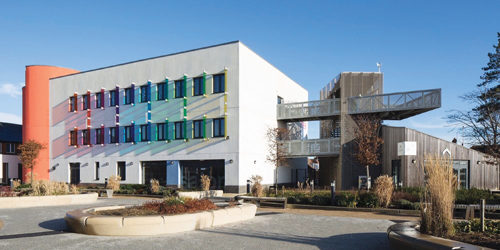
In August, it was announced that two of our leading regional legal firms, DMH Stallard and Rawlison Butler are to merge together with effect from September. Across the professional services sector there has been a tangible trend of consolidations, mergers and acquisitions over the past few years. Sometimes it is to create a stronger presence in the market, sometimes it is a solution to a firm’s succession. Whatever the reason, big is beautiful.
The same most definitely applies to the Further Education Colleges. Earlier this year the merger of Northbrook College and Brighton’s City College was completed to create Greater Brighton Metropolitan College. Over the summer, Chichester College and Central Sussex combined into the Chichester College Group. Next up, will be the combination of Sussex Downs College and Sussex Coast College. The day of ‘Supercollege’ has truly arrived. Of the 450 colleges in England at incorporation in 1993, only 243 remained in July 2016.
It has been on the cards for several years, but the trend became inevitable in 2015 when the Government produced its “Reviewing post- 16 Education and Training Institutions” report.
It spelt out in no uncertain terms that small, local colleges were becoming unsustainable, as this except reveals:
“A … major reform of post-16 education and training institutions is now necessary, in a way which also addresses the significant financial pressures on institutions including a declining 16-19 population and the need to maintain very tight fiscal discipline in order to tackle the deficit.
“We will need to move towards fewer, often larger, more resilient and efficient providers. We expect this to enable greater specialisation, creating institutions that are genuine centres of expertise, able to support progression up to a high level in professional and technical disciplines, while also supporting institutions that achieve excellence in teaching essential basic skills – such as English and maths.”
The justification is that larger colleges can offer more targeted courses and will be able to specialise. In reality, the driver has been money, or more accurately the lack of money.
At the same time school sixth forms have come under equal pressure. The Association of School and College Leaders has stated that a sixth form needs to have at least 200 pupils to be economically sustainable. In 2015-16, more than 1,000 school sixth forms had fewer than 200 pupils, and 88 had fewer than 50 sixth formers.
The combining of colleges can make economic sense. The Guardian reported on the example of Leeds City College, which has overseen three mergers involving five colleges since 2009: “Centralising resources and joining up on back office systems is one of the great benefits. The college now delivers all of its hair and beauty provision on one site, which has helped to reduce staff and site management costs. Being a bigger college also makes it easier to explore other business avenues. The college’s catering and hospitality section, for example, has set up a bakery and butchers, and students help run a canteen at a local engineering company.”
Unions are not so keen, with the potential loss of jobs involved in the mergers. But most see the tide of mergers as an inevitability, and concentrate on making the new system work as well as possible for both students and staff.
Northbrook College and City College Brighton
Greater Brighton Metropolitan College (MET) was created from the merger of City College Brighton and Northbrook College Sussex. The MET operates across five campuses in Brighton, Shoreham, Worthing and teaches around 3,500 16-18 year olds, 7,500 adult learners, 1,000 undergraduates and 800 apprentices.
Northbrook MET is the principal provider of work-related further education in an area centred on the south coast town of Worthing. It is also the largest provider in West Sussex of undergraduate courses for the creative and cultural industries.
Chichester College and Central Sussex College
The merger, which took place on 1st August, created the largest college group in Sussex, providing high quality learning opportunities for around 25,000 students each year.
As part of the merger, Central Sussex College has been renamed to reflect the group’s commitment to the local community and will now be known as Crawley College.
Shelagh Legrave OBE DL has been appointed Chief Executive Officer for the group. She is joined by Kieran Stigant, who takes up his position as Chair of the corporation.
A new principal – Vicki Illingworth - has also been appointed for Crawley College, while Andrew Green will become executive principal at Chichester College.
The group covers four main sites – Chichester College, Crawley College, Brinsbury (a land-based campus) and Horsham Training Centre.
It also has an extensive portfolio of successful commercial businesses which operate alongside the colleges, including a chain of childcare nurseries (First Steps Childcare), an examination board, international education and sports and conferencing facilities.
Sussex Downs College and Sussex Coast College Hastings
The colleges have declared their intent to merge (subject to due diligence). Further talks are planned to examine the business case for a formal merger and if successful the new college will launch on March 29, 2018.
Sussex Downs College offers full-time and part-time courses including A-levels, BTECs, apprenticeships and a wide range of vocational qualifications. A total of 3,800 students aged 16-19 and 6,000 adult learners enrolled in 2016/17 across three sites in Eastbourne, Lewes and Newhaven.
In 2010 Sussex Coast College Hastings opened two new college campuses, one on Station Plaza in the town centre and the other in Ore Valley. The £120 million project was transformative for Hastings and the college now welcomes over 1,800 young people and 4,000 adults every year to full-time and part-time academic and vocational courses from across Hastings and Rother.
Sussex Coast College is also launching a University Centre in September 2017 offering degrees and higher education to 400 students.
The colleges have been close working partners for some time. Launched a year ago, Sussex Skills Solutions is a highly successful joint venture that is focussed on apprenticeships and employer related trading. Working in partnership will be a hallmark of the new college as new and innovative ways of working are established with schools, parents, employers, social enterprises and local authorities.






